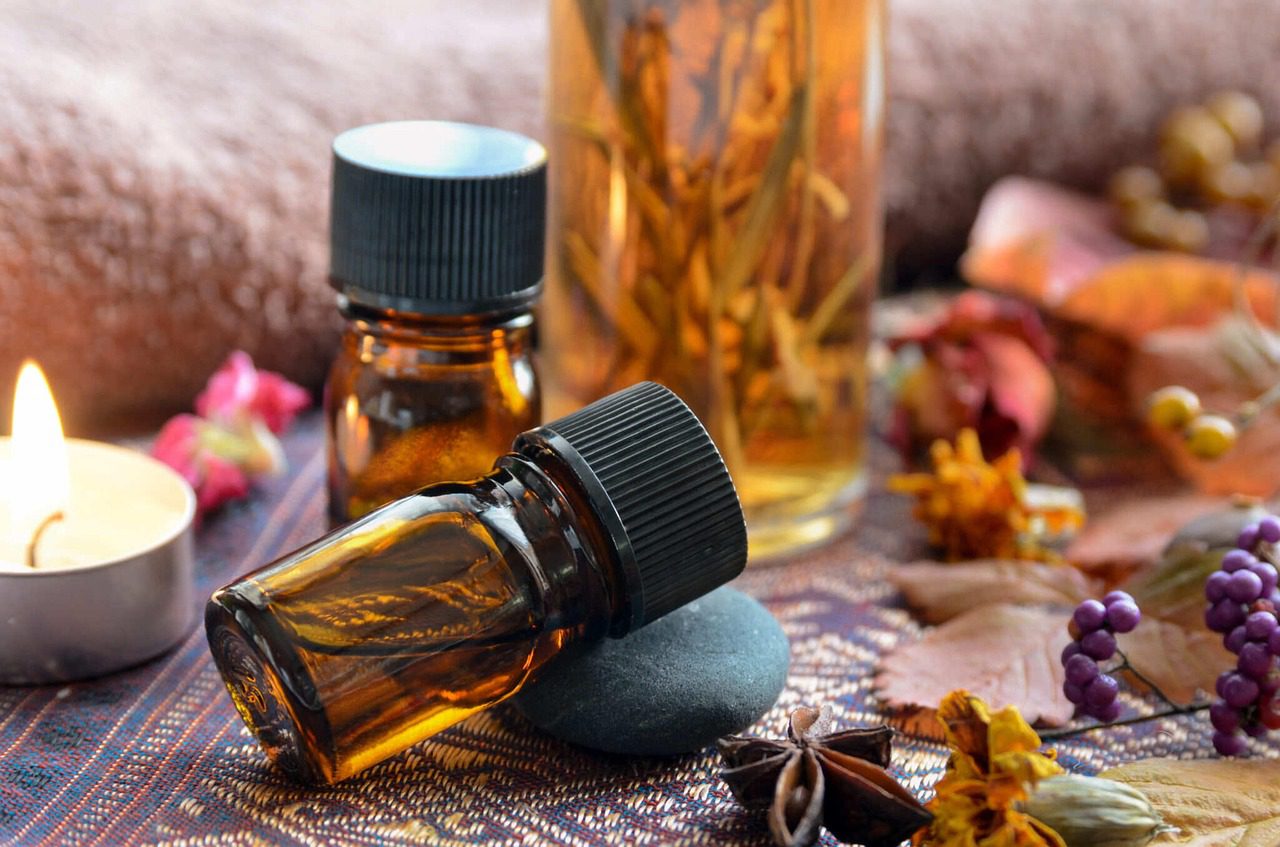We’ve all been there – those sleepless nights when you find yourself lying awake, staring at the familiar ceiling, feeling completely exhausted yet unable to drift off. Each tick of the clock echoes our frustration, amplifying the sense of helplessness, wondering why sleep feels so far away. It’s a struggle many of us face, and it’s hard not to feel discouraged when rest seems just out of reach.
While prescription sleep aids may provide immediate relief, they often bring along unwelcome side effects such as grogginess and dependency. The good news is that nature offers a treasure trove of effective herbal sleep remedies that promote relaxation and help you gently drift off to sleep.
If you’re on the lookout for the best natural sleep aids, we are excited to share a carefully curated list of science-supported herbal options that encourage deep, restorative sleep free from harsh chemicals.
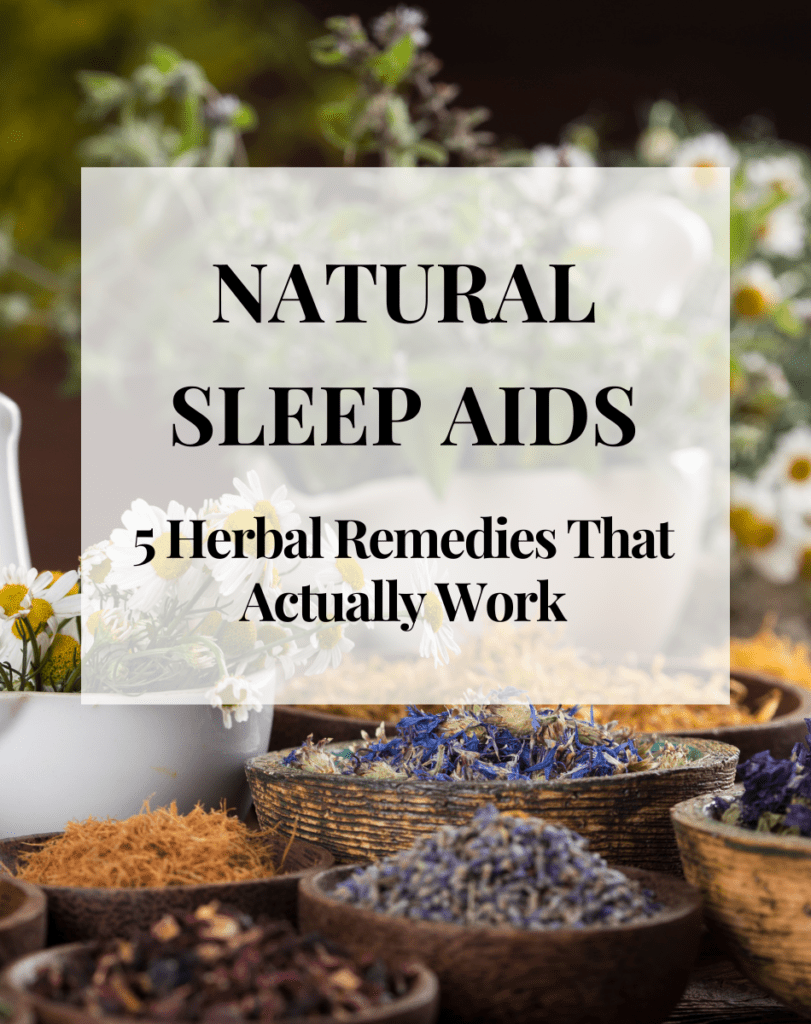
Affiliate Disclaimer: This article contains affiliate links. As an Amazon Associate, we may earn from qualifying purchases at no additional cost to you.
Why Choose Natural Sleep Aids?
In our fast-paced world, many individuals are turning to the soothing embrace of herbal remedies for a restful night’s sleep. And the benefits are truly compelling!
Natural sleep aids support the body’s natural sleep cycle without creating a dependence, allowing you to enjoy restorative sleep naturally.
They boast significantly fewer side effects compared to synthetic medications, providing peace of mind as you seek rest.
These remedies are designed to promote overall relaxation and well-being, enhancing not only your sleep but your entire lifestyle.
If you’re looking for a gentle and holistic approach to achieving a restful night, these remedies may very well be the perfect fit for you.
Top 5 Natural Sleep Remedies
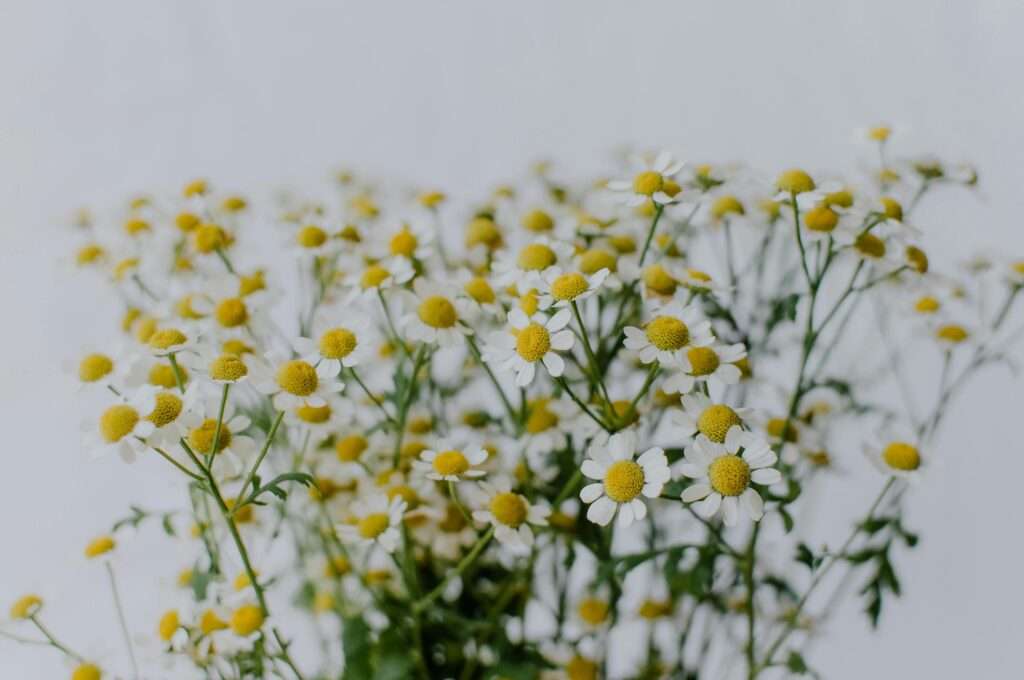
1. Chamomile
The Classic Sleep Soother
Best for individuals who experience stress, mild anxiety, or trouble winding down before bed.
Chamomile is beloved for its ability to promote relaxation and ease anxiety. Rich in apigenin, a powerful antioxidant, it binds to brain receptors and encourages sleep while also supporting digestion, which can enhance your overall sleep quality. This remedy is particularly beneficial for individuals experiencing stress, mild anxiety, or difficulty winding down in the evening.
How & When to Use: Enjoy a cup of chamomile tea 30 to 60 minutes before bedtime. Simply steep dried chamomile flowers or tea bags in hot water for 5 to 7 minutes. For an extra soothing touch, add a hint of lavender or honey.
Things to Consider: If you have allergies to ragweed or plants in the Asteraceae family, it may be best to avoid chamomile. Additionally, consult your healthcare provider if you are taking blood thinners, as there may be potential interactions.
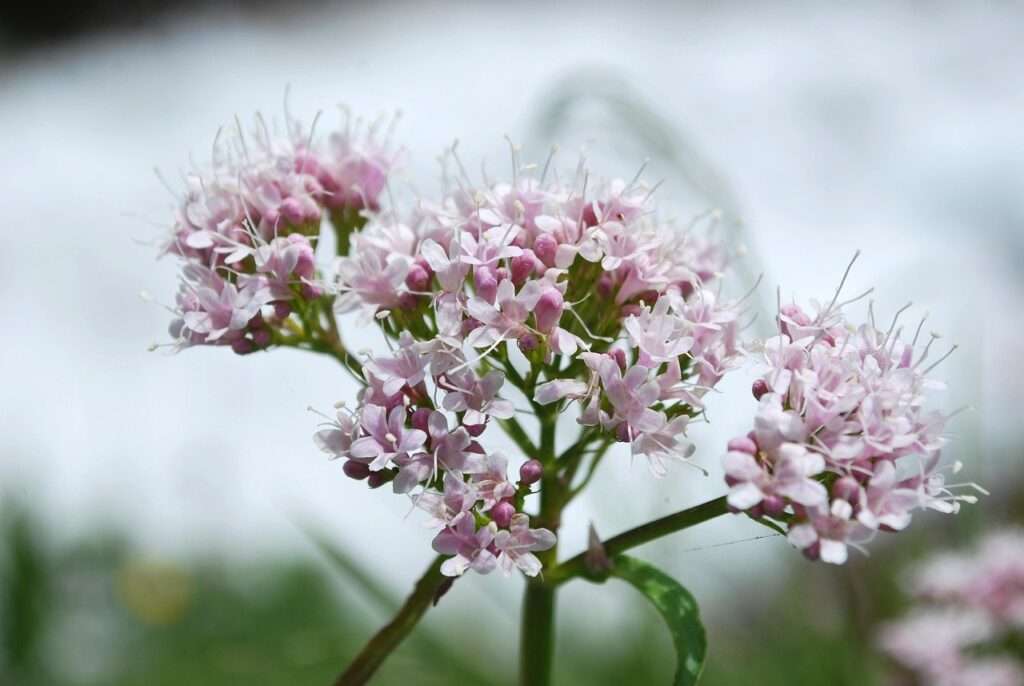
2. Valerian Root
The Deep Sleep Enhancer
Best for people who struggle with staying asleep or need a stronger natural sleep aid.
Valerian root has a reputation for improving both sleep quality and duration, though its effects may take two or more weeks of regular use to become noticeable. It acts as a natural sedative, helping to mitigate anxiety and nervous tension, making it an excellent choice for those experiencing mild insomnia without the dreaded next-day grogginess.
How & When to Use: Take valerian root 30–60 minutes before bedtime. It comes available in tea, capsules, or tinctures. It’s best used in cycles, taking it for a few weeks and a short break.
Things to Consider: A small percentage of users may experience mild grogginess or dizziness. It’s advisable to avoid combining valerian with alcohol or other sedatives. Remember that it may take a few weeks of regular use to fully appreciate its benefits.
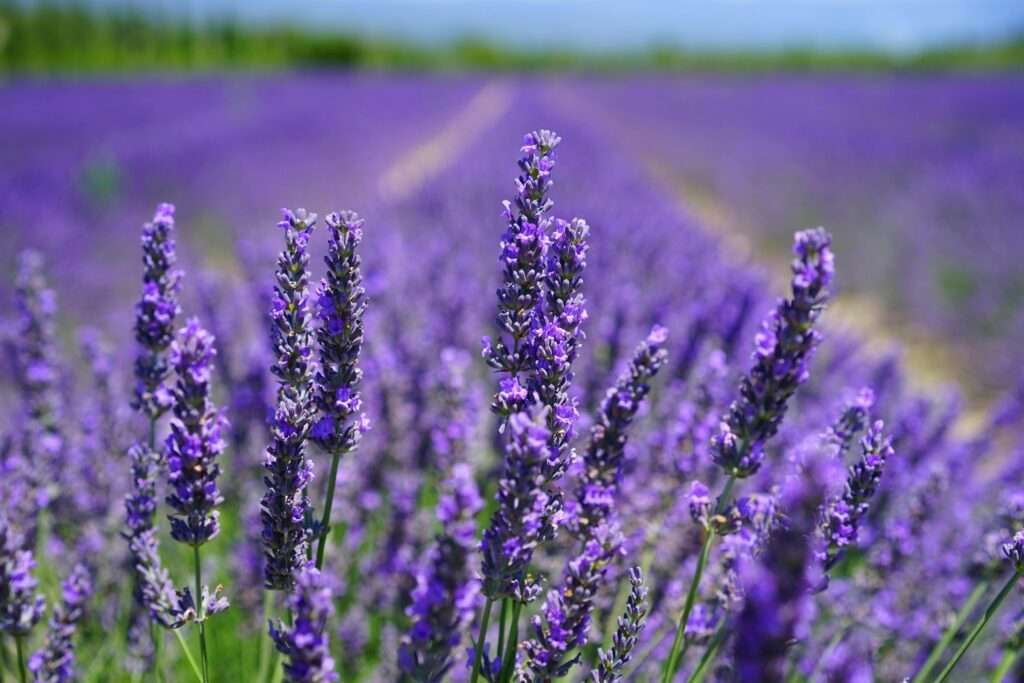
3. Lavender
The Aromatic Sleep Inducer
Best for individuals looking for a gentle, non-ingestible relaxation aid.
Lavender is renowned for its calming properties, reducing stress while alleviating mild insomnia and anxiety. Whether enjoyed through aromatherapy, teas, or baths, lavender can be a gentle companion for relaxation.
How & When to Use: Enjoy lavender tea about 30 to 60 minutes before bedtime or use lavender essential oil in a diffuser, or apply it onto your pillow. For a more luxurious experience, add a few drops of lavender oil to your warm bath. For added calmness, try pairing it with chamomile.
Things to Consider: While generally safe, some individuals may have mild allergic reactions. Exercise caution when applying essential oils directly to your skin to avoid irritation.
For more essential oils that improve sleep, check out our related article: 5 Best Essential Oils for Sleep: Improve Rest Naturally with Aromatherapy.

4. Passionflower
The Sleep & Stress Balancer
Best for people who have trouble quieting their minds at night.
Passionflower can be a helpful aid for achieving deep, restful sleep. It effectively quiets racing thoughts and alleviates nervous tension, making it an excellent choice for those dealing with mild insomnia or anxiety.
How & When to Use: Enjoy passionflower as a tea or tincture 30 to 60 minutes before bed. It works well combined with valerian or chamomile and it can easily be incorporated into your nightly routine.
Things to Consider: If you are taking sedatives or anxiety medications, consult your healthcare provider, as passionflower may interact with these substances. It is also not recommended for pregnant or nursing individuals.
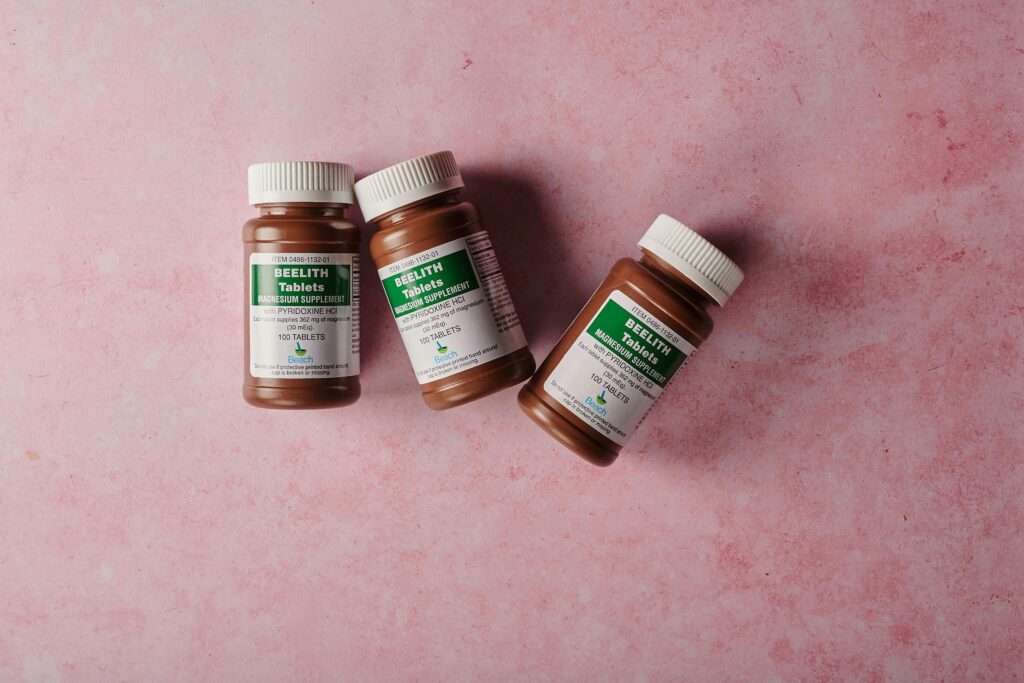
5. Magnesium
The Sleep Mineral
Best for individuals who experience muscle tension, restless sleep, or stress-related insomnia.
Although not an herbal remedy, magnesium plays a crucial role in relaxing muscles and the nervous system. It supports melatonin production and can help alleviate restless leg syndrome, a common cause of nighttime disturbances.
How & When to Use: Take magnesium 30–60 minutes before bed as a supplement or tea blend. Use Epsom salt baths for additional relaxation and tranquillity. It works well alongside other calming herbs.
Things to Consider: Be mindful that excessive magnesium may lead to digestive issues such as diarrhea, and those with kidney problems should consult a healthcare professional before supplementing.
Natural Sleep Aids Comparison Chart
Frequently Asked Questions About Natural Sleep Aids
Finding Your Best Natural Sleep Aid
The key to better sleep involves more than just the right herbal remedy; it’s also about creating a relaxing bedtime routine that signals your body to wind down. Try starting with one simple change tonight – brew a comforting cup of chamomile tea, take a magnesium supplement, or diffuse lavender oil – and see how your body responds.
Coupling these natural aids with positive sleep habits – like reducing screen time, ensuring a cool, dark room, and sticking to a regular sleep schedule – can lead to deeper, more restorative sleep.
Wishing you sweet dreams and peaceful nights!

